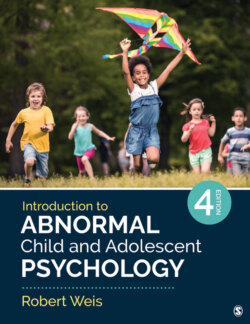Читать книгу Introduction to Abnormal Child and Adolescent Psychology - Robert Weis - Страница 104
На сайте Литреса книга снята с продажи.
Peer Acceptance and Rejection
ОглавлениеThe formation of relationships depends on cognitive, emotional, behavioral, and social factors (Hay, 2016; Prinstein & Giletta, 2016). First, the ability to form friendships depends on children’s cognitive development. Young children must be able to attend to the activities of others, imitate others’ actions, understand cause-and-effect relationships, and have basic competence with language. Children with autism, communication or learning disorders, and developmental disabilities may have trouble gaining acceptance from peers because of deficits in these areas.
Second, interpersonal relationships depend on the ability to accurately interpret others’ emotions, the capacity to regulate one’s own emotional expression, and the ability to empathize. As we have seen, youths with autism have difficulty understanding emotions and showing empathy. Children and adolescents with mood disorders also typically have problems with emotion regulation. Irritability, sadness, or social withdrawal can compromise their relationships with family and friends.
Third, children must be able to regulate their own behavior to make and keep friends. Children with ADHD and other disruptive behavior disorders are often rejected by peers because of their aversive, high-rate, or aggressive actions.
Finally, children need adequate social skills to form intimate relationships with others (McGinnis, 2011a, 2011b). These skills include knowing how to introduce yourself to a stranger, how to avoid a fight with a friend, and how to cope with social stress or peer pressure. Inadequate social skills can lead to peer rejection. Some peer-rejected youths develop depression and other mood problems, whereas other rejected youths associate with deviant peers who introduce them to antisocial behavior.
Review
Sullivan believed that close friendships are critical to children’s social and emotional competence. Friendships in childhood form the basis for future adult relationships based on mutual respect.
Peer acceptance depends on behavioral, cognitive, and social–emotional competence. Problems in any of these areas can contribute to peer rejection and psychological problems.
